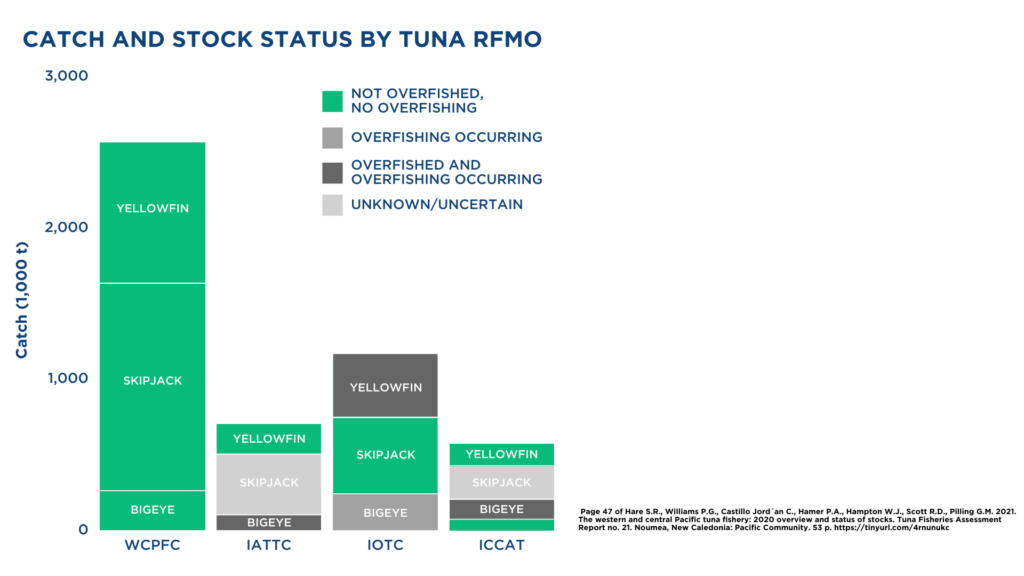Harvest strategies are the only way fisheries in the West and Central Pacific Ocean (WCPO) can ensure we maintain healthy tuna stocks. Managing fisheries without harvest strategies is like having a house with no roof. It’s fine while the sun is shining, but when the weather turns, it’ll be too late. The upcoming WCPFC Science-Manager Dialogue Meeting gives delegates an opportunity to confirm the details or ‘settings’ for potential harvest strategies in the WCPO fisheries. These stocks may be ‘green’ currently, but the voice of the market is calling for future-proofing to weather the inevitable storms ahead.
The Global Tuna Alliance (GTA) is a precompetitive collaboration of 49 independent retailers, suppliers, wholesalers, and brands active in the seafood sector and with a major interest in improving the sustainability of the tuna sector. Collectively, these companies form one of the world’s biggest networks of seafood wholesalers and suppliers to the consumer, particularly of tuna, purchasing 1.63 million tonnes worth US $2.35 billion in 2021 alone. This is roughly 30% of the global production.

Sustainable fisheries are at the core of the continued success of GTA partners’ businesses.
“We appreciate that the major tuna stocks in the Western and Central Pacific Ocean are currently “in the green1” – with no overfished stocks or overfishing occurring,” says Dr Tom Pickerell, Executive Director of the Global Tuna Alliance. “But to ensure this continues, we are calling on the Western and Central Pacific Fisheries Commission (WCPFC) to accelerate action to develop comprehensive management procedures (harvest strategies) across these stocks.”
There are 30 tuna fisheries in the region that are either Marine Stewardship Council (MSC) certified or in full assessment, representing over two million tonnes of certified and potentially certified WCPFC tuna within the supply chain each year. This equates to three-quarters of the global production of MSC-certified tuna.
These certifications are at high risk of suspension from the program if the WCPFC is unable to complete its workplans related to management procedures and harvest control rules by December 2022. The MSC has published a factsheet that outlines this situation. These fisheries are not too big to fail; in 2019 and 2020 the mackerel, herring and blue whiting fisheries in the NE Atlantic (over 2m tonnes) lost their MSC certifications for similar reasons.
The upcoming WCPFC Science-Manager Dialogue (SMD) meeting, taking place in August 2022, provides an opportunity to confirm the ‘settings’ of the proposed skipjack and albacore management procedures, and is a crucial step.
As our Partners are engaged in the sourcing of tuna globally, they are concerned that if the SMD fails to make significant progress, then MSC certified tuna fisheries in the West and Central Pacific Ocean could face difficulty meeting their conditions and certifiers may suspend them in June 2023. But the bigger picture is that if these fisheries are not managed properly there is a risk that the current good status of these tuna stocks will be lost. Whether the MSC certification is maintained or lost will provide an indicator of what we may see happen.
In advance of the SMD meeting, the GTA urges all WCPFC delegations to ensure that the region’s tuna fisheries are sustainably managed – this is critical to the long-term viability of the industry and the people it employs. Each delegation has a vital role to play in working with other WCPFC members to deliver an outcome of global significance for the future health of Western and Central Pacific Ocean tuna stocks and the coastal communities who depend on them.
–ENDS
Notes to editors:
The Global Tuna Alliance (GTA) is an independent group of retailers and tuna supply chain companies who are committed to achieving more transparent, socially responsible, and environmentally sustainable tuna fisheries. Operating over 10,000 stores and spanning every continent, they use their collective purchasing power to influence the policies set out by the tuna Regional Fisheries Management Organizations (tRFMOs).
The Western and Central Pacific Fisheries Commission (WCPFC) is a treaty-based organisation established to conserve and manage tuna and other highly migratory fish stocks across the Western and Central areas of the Pacific Ocean (WCPO).
